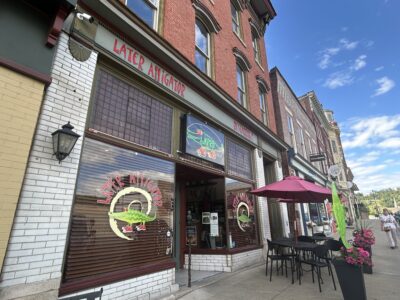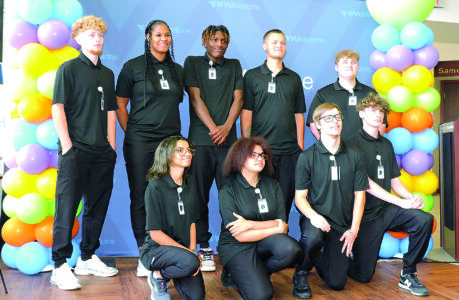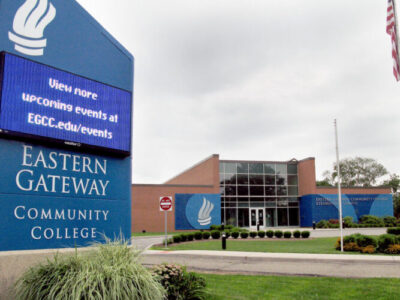Later Alligator Receives $50,000 Historic Preservation Grant for Restaurants

photo by: Joselyn King
Later Alligator in Center Wheeling is the recipient of a $50,000 grant from the National Trust for Historic Preservation and American Express through the Backing Historic Small Restaurants grant program.
The Later Alligator restaurant in Center Wheeling is getting $50,000 to preserve the outside historical features of its building.
The National Trust for Historic Preservation and American Express have announced $50,000 awards for 50 small or independently owned restaurants across the country through the Backing Historic Small Restaurants grant program.
Among those on the list is Later Alligator, located at 2145 Market St., Wheeling.
Each restaurant selected for the grant is a place that has been determined to contribute to their neighborhood’s unique history and identity, according to information from the National Trust for Historic Preservation.
The Later Alligator building was constructed in 1860 and began life as a grocery store, according to co-owner Mitch Haddad. Haddad co-owns Later Alligator with his mother Susan Haddad, who purchased the building and began its renovation in 2003. It opened as the Later Alligator in 2006.
Haddad noted that over the years it has served as a saloon on numerous occasions, and as a jewelry store. But people most remember it as a place to buy Red Wing shoes, he continued.
When the Haddad’s purchased the building, it had last housed a junk store on the first floor.
“It (restoration) needed a lot done,” he said. “That was 20 years ago.”
Haddad credits his mother with much of the renovation work.
“She painted every brick on the building,” he said. “It looks like it’s red brick, but it’s not. There’s dingy gray brick underneath.
“But she knew what she wanted, and she knew she wasn’t going to get it unless she did it herself.”
Susan Haddad gutted the inside and built the bar. Along the way she found the original tin ceiling hidden under multiple layers of paint and pulled up the carpeting to reveal the original tile floor.
But tiles were missing, and Haddad said she realized any new tile wouldn’t be the right color when installed.
In the basement she found many bottles, glass and ceramics.
“Anything she found interesting she smashed up and put it in (as tile),” he explained.
Those looking closely at the fireplace hearth in the building may notice the PT Cruiser Match Box car grouted into its hearth.
“She has a fabulous brain for using places,” he said of his mother. “She should have been an architect. She is really good at it.”
Haddad added the $50,000 award “is going to do a lot,” though there are very specific regulations on how the money can be used. Specifically, it has to be used only for improvements on the exteriors of the building “facing out.”
“They (the National Trust for Historic Preservation) have been very kind and helpful,” Haddad continued. “They are enabling us to do preservation that needs to be done, but not in our budget. It’s a big deal.
“We applied under a scope of work, and they are letting us tweak it. We are in the process of finalizing it, and we want to make sure it is approvable.”
Haddad noted he had never written a grant request before, and appreciated the help he has received from the National Trust for Historic Preservation.
“We have plans on plans (for renovations), that is not the issue,” he said. “We have to be able to fund them. It has been challenging, but we’re still here. We’re still doing it. But there are things on the agenda that take time to do.”
Since it began five years ago, the Backing Historic Small Restaurants program has awarded over $8 million in grants to 180 historic small restaurants across all 50 states, Washington D.C., Puerto Rico and the U.S. Virgin Islands, according to information from the National Trust for Historic Preservation.




